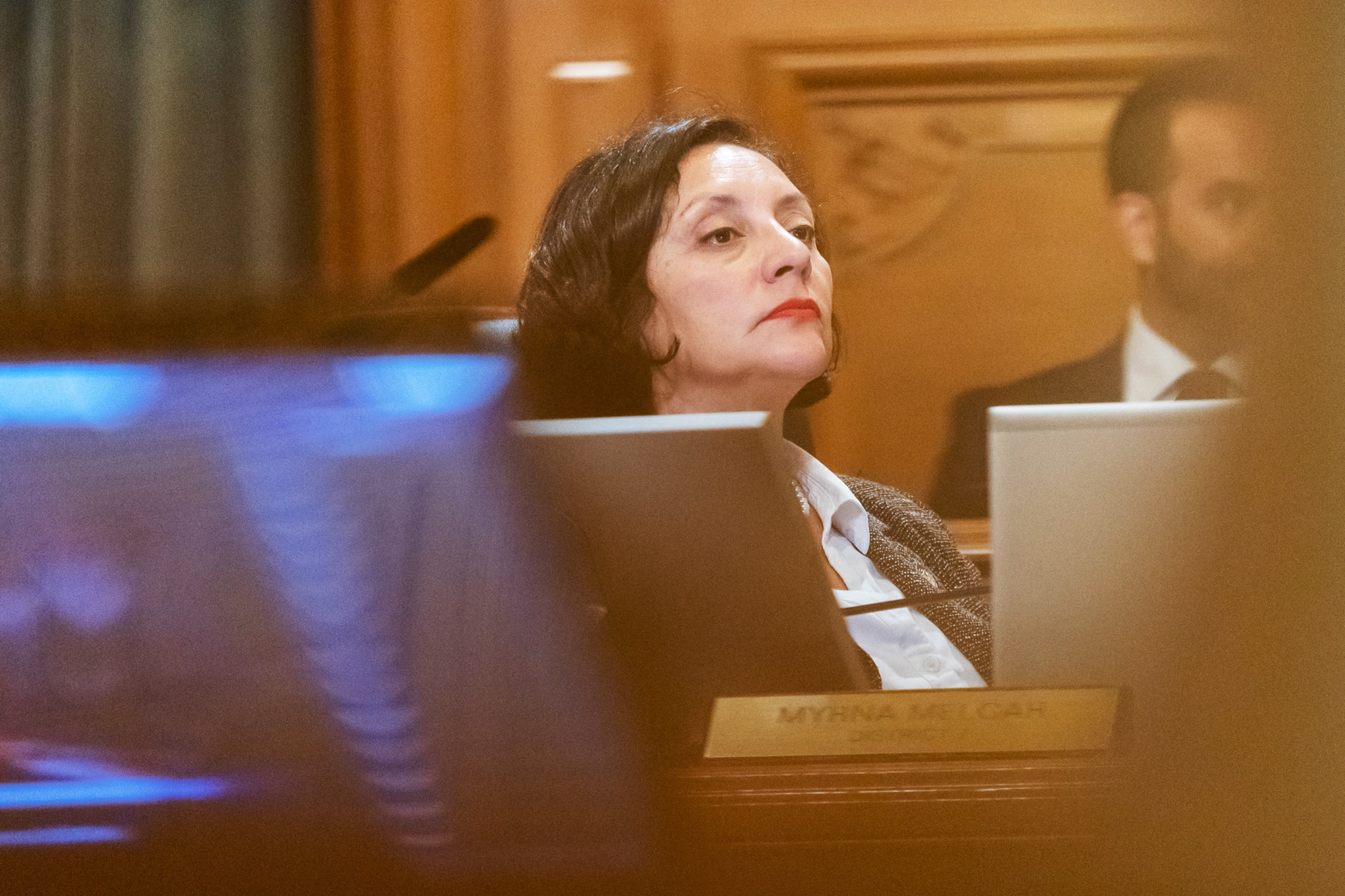Two San Francisco supervisors will miss key meetings this week to attend a taxpayer-funded junket in Japan to learn how an institute in the country teaches math.
The details of that word salad of a sentence might seem a bit mystifying for those who realize:
- San Francisco supervisors have no role in deciding how math is taught in the city’s public schools.
- The mayor just announced last month that the city could be facing a half-billion dollar deficit, and trips to Japan wouldn’t seem to rate on the priority scale.
- Algebra hasn’t even been taught (opens in new tab) to San Francisco’s eighth graders in almost a decade.
- Cherry blossom season doesn’t start until the end of March.
Adding a bit more complexity to the situation, the absences of Supervisors Hillary Ronen and Myrna Melgar from this week’s Board of Supervisors meeting could create hiccups in getting measures on the March 2024 ballot, especially if the return leg of their 5,180-mile trip runs long. Recent history shows it wouldn’t be the first time a supervisor was overly optimistic about returning home in time for an important meeting.
In a phone call last week, Melgar defended the trip, which will include training at Tokyo Gakugei University, by noting that the city gives millions every year to fund the San Francisco Unified School District. After Proposition G passed with 64% of the vote last year, the city will be contributing tens of millions more in the years to come.

“We give [the school district] so much money with very little accountability, and I think this is one thing we can do to provide leadership,” Melgar said, adding that a current pilot program based on a Japanese teaching method in four San Francisco schools has shown remarkable results.
Over the course of four years, competency in math and literacy at John Muir Elementary School—where a program based on Japanese teaching methods was first implemented—went from below 20% of students performing at grade level to over 57% of students meeting state standards, officials said.
But the role San Francisco supervisors have played in facilitating this improvement is questionable.
Maria Su, executive director of the city’s Department of Youth, Children and Their Families, told The Standard in an email that this is the second time the school district has organized a trip and her department is picking up the cost of Ronen and a staffer’s flights to Japan at a cost of $2,558. Melgar has offered to reimburse the city.
“We paid for it before the mayor put out her budget restrictions,” Melgar said. “It’s the worst of both worlds: We either lose the money, or we don’t go.”
Ronen, who terms out next year, did not respond to a request for comment for this story, but her office put out a press release defending the trip about three hours after The Standard first began contacting city officials last Thursday.

Melgar, who is in her first term and represents parts of the Inner Sunset and West Portal, will return Monday, Nov. 13, while the Mission District’s Ronen is cutting it close by returning the morning of Tuesday, Nov. 14, according to letters the supervisors submitted last week requesting excused absences.
Several political insiders in and around City Hall raised eyebrows over the trip when contacted by The Standard, but few were willing to criticize the expense on the record.
Todd David, the political director of moderate political organization Abundant SF, expressed concerns that the supervisors’ trip could jeopardize a $300 million affordable housing bond measure that is expected to go to San Francisco voters in March.
Supervisors need to twice sign off on the ballot measure with a supermajority—eight of 11 votes—to get it on the ballot, and time is running short ahead of a Nov. 27 deadline. Supervisor Aaron Peskin, president of the Board of Supervisors, said the “crucial votes” will come after Melgar and Ronen are scheduled to return, but that answer hasn’t satisfied all parties.
“While I appreciate the supervisors are interested in math,” David said, “I would strongly prefer they focus on the things they were elected to do.”
Supervisor Joel Engardio, who represents the Sunset, will also wade into the education fight next week by introducing a nonbinding resolution that calls for San Francisco’s public schools to bring algebra back to eighth grade.
Sources told The Standard that new schools Superintendent Matt Wayne has been resistant to the resolution because it could complicate the passage of a billion-dollar school bond the school district is aiming to place on the same ballot in March.
A spokesperson for the school district did not address Wayne’s position on Engardio’s proposed resolution, but the official noted in an email that the district is creating a second focus group to explore bringing algebra back to eighth grade.
Autumn Looijen, founder of the education-focused group San Francisco Guardians, which led last year’s recall of three school board members, said she was surprised to learn of the supervisors’ Japan trip and hoped supervisors would “double down” on other issues besides schools.
However, she also noted that the 2014 decision to drop algebra for public school eighth graders has caused serious harm to students.
“I don’t know whether an in-person visit to Japan is the most effective way to learn more, because they’re not in charge of schools,” Looijen said. “I do think it’s a good sign that they’re paying attention.”
